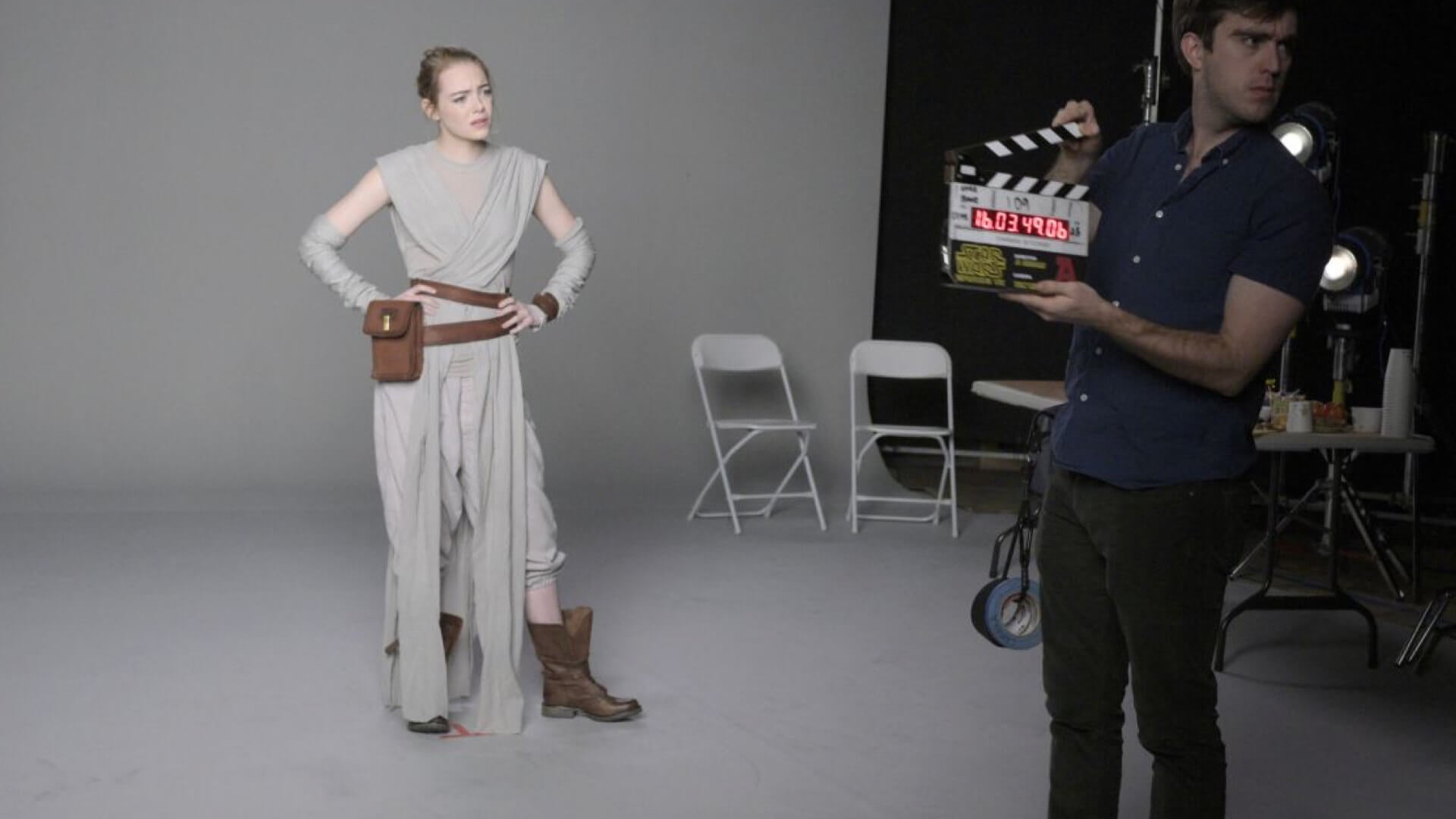The project’s been green lit. The script’s been finalized. I’m going to hold an open casting call! Not so fast. If you’re not careful, your open casting call can be disorganized and rushed, netting you less than amazing actors.
Unlike finding your film crew, the casting process takes months of prepping and approvals to get your final cast list set. Luckily, we’re breaking down how to run open casting calls and walking you through a casting sheet template.
FREE Download: Casting Sheet Template
"Use this casting application form as a basis for your open casting call. With every column customizable, get all the information you need the first time."
![The Ultimate Guide to Casting Auditions (with FREE Casting Sheet Template) - Full Casting Sheet The Ultimate Guide to Auditions [FREE Casting Sheet Template] 1](https://s.studiobinder.com/wp-content/uploads/2017/06/The-Ultimate-Guide-to-Casting-Auditions-with-FREE-Casting-Sheet-Template-Full-Casting-Sheet.png)
Download your FREE Casting Sheet Template.
Just enter your email address and we'll instantly send it to you!
1. Read the script again
Read the script again and again
Before you can even think of casting notices, you have to read the script again. And again for good measure.
Knowing the screenplay cold ensures you not only cast every part you need, but also that you get the right actors for the right part.
What are the emotional swings the characters go through? Does a character have to speak with an Irish accent? Does one character have to act through heavy make-up?
To ensure you don’t miss any characters on your casting notices, be sure to run your screenplay through pre-production software like StudioBinder.
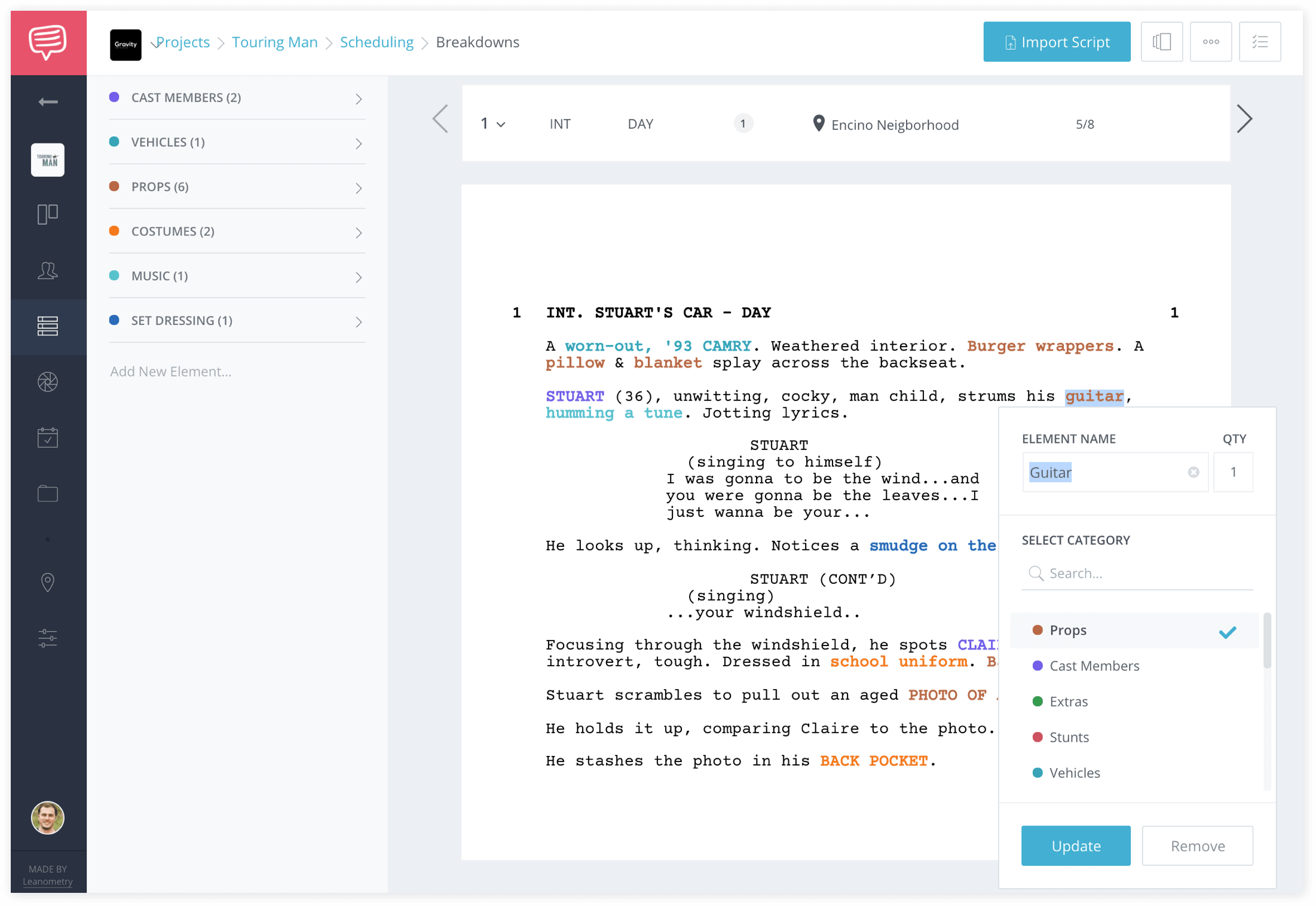
Script Breakdown Software - StudioBinder
StudioBinder’s breakdown software lets you tag cast members, extras, props, etc into production element categories. Easily generate breakdown lists you can access at any stage of production.
2. Create a casting breakdown
Write a casting breakdown
After you’ve combed through each page of the script and listed out all the characters and extras you need to cast, it’s time to write a casting breakdown.

Write a casting breakdown
Think of it as short character bio, written to grab the attention of actors, agents, and casting directors. It should be informative as it is exciting. It’s heart of your actor’s job listing.
WHAT IS A CASTING BREAKDOWN?
A casting breakdown looks like a short bio, featuring a character’s age, ethnicity (if specified), body type, and personality. You should also include any special skills needed.
A casting breakdown example looks like this:
THE BEAST (Male, 30-40) a prince transformed into a terrifying beast for his lack of compassion. He is hot-tempered and commanding, but has a warm, loving heart buried far beneath his gruff exterior. Must sing. Vocal range: F4 to A2.
Does this casting breakdown example make you want to know more about the character? Hopefully. The best casting breakdowns get across all the information, but draw the actor in.
When writing your casting breakdown, it’s easy to be racist. After all, some films are looking for a certain ethnicity for their project. Unless the script specifies a certain ethnicity, leave the role open. Don’t just list “Caucasian Only” for no reason. When you let the casting process guide you, you end up with talent like Samuel Jackson filling the traditional white role of Nick Fury.
3. Find casting space
Space for your casting call
Before you can print off some warm casting sheets, you need to find space for your open casting call.
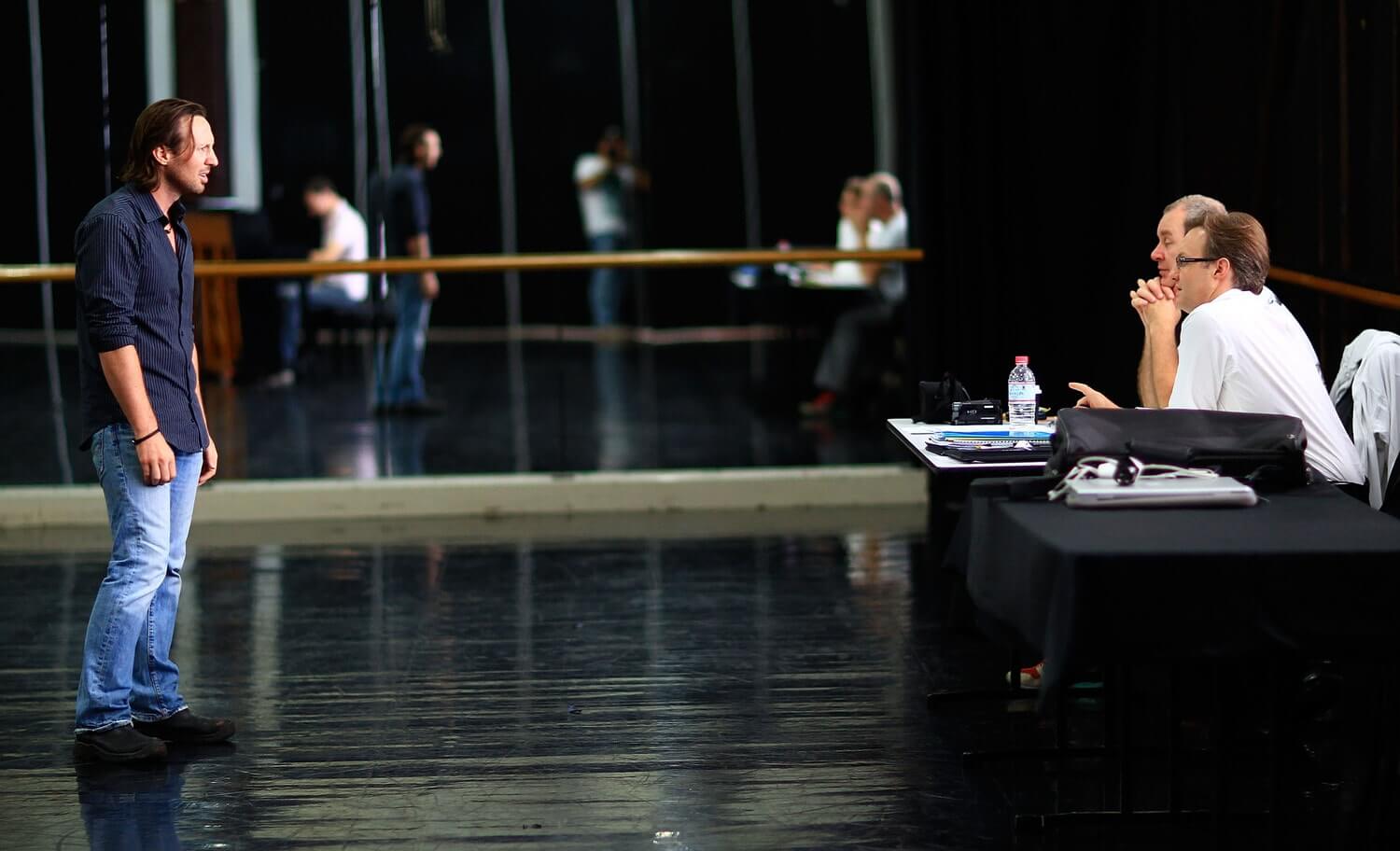
Space for your casting call
If you’re hiring a casting company, this step is all taken care of. Just send along some audition sides, make sure the casting sheet covers everything you need, and you’re in business.
If you’re doing it yourself, find a space that can accommodate the long lines of actors that will show up to your casting call. You can stagger out the audition times as much as you want, but you’re still going to need a huge waiting room.
And lots of parking.
Make sure there’s a reception area where you can your casting sign in sheet. (Casting sign-in sheet template here).
4. Posting a casting notice
Get the word out
You could have the juiciest, most Oscar-worthy part available. But if no one knows about it, you’re out of luck. Posting your casting notice gets the word out.
Casting notices (or casting call), is your casting breakdown plus general information about your project.
Are you looking for NYC SAG-AFTRA actors? Are you looking looking to shoot on location in Rome? You casting call includes all this information and where to show up for the film audition.
WHAT IS A CASTING CALL?
While not a casting call form template, a casting call usually lists:
- Production Title
- Union / Non-Union Status
- Production Type
- Project Length
- Project Format
- Posted Date
- Production Location
- Production Companies
- Company website
- Director
- Producer
- Casting Director
- Audition Location
- Shooting Location
- Compensation
- Dates and Times of Film Auditions
- Dates and Times of Callbacks
- Synopsis of project
- Character breakdowns
Casting notices are sent to agents, and are posted on websites like Backstage. Instead of attaching a casting sheet, these websites collect all the information and headshots you need, so when actors come in, they’re ready to go.
If you’re on a tight budget, reach out to acting schools where actors are often willing to trade money for experience.
5. fill out casting sheets
Have your actors fill out casting sheets
As actors show up to your open casting call, you have to get information from each of them on a casting sheet.
Also known as audition sheets, casting sheets collect all the necessary information from your actors needed to start production.
As you watch film audition after film audition, the casting sheet keeps you on track with you’re actually seeing. It syncs up with your casting sign in sheet and is basically contact information on steroids.
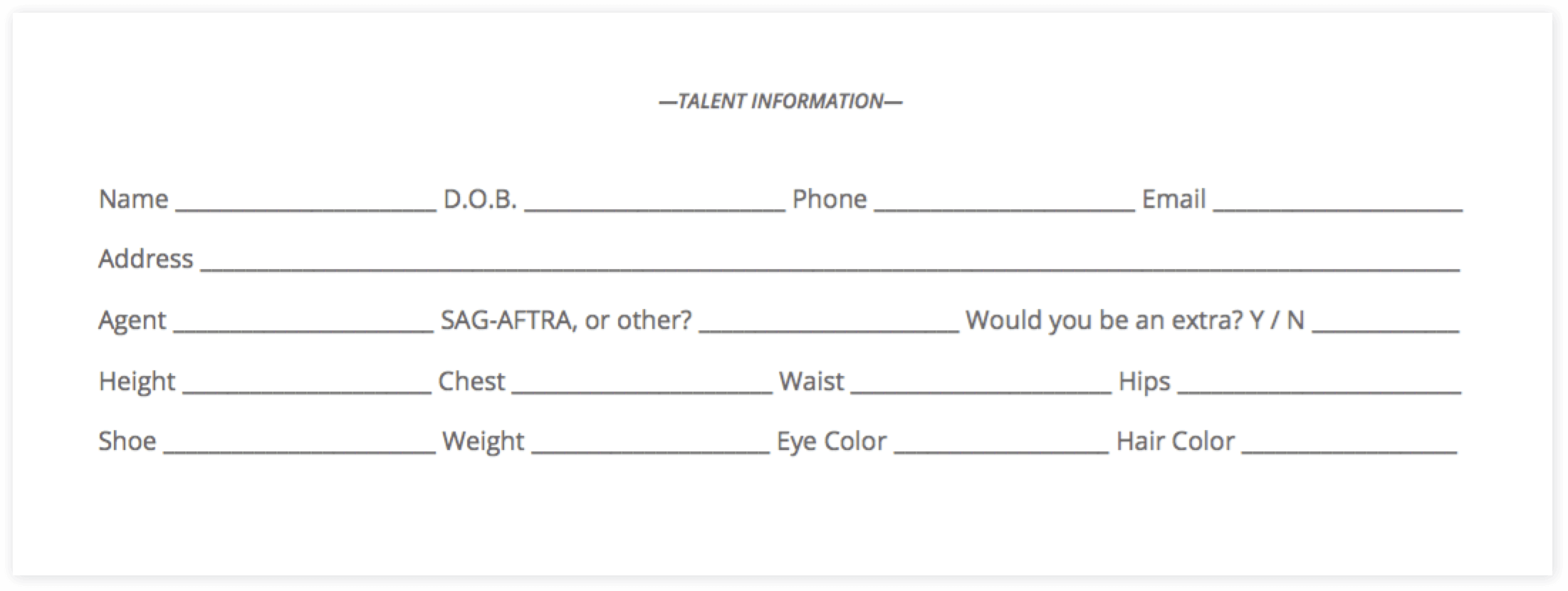
Have your actors fill out casting sheets
WHAT GOES ON A CASTING SHEET?
While no two casting sheets are alike, the most information a casting sheet will require is:
- Name
- Date of Birth
- Address (of agency, if repped)
- Email (of agency, if repped)
- Agent (if repped)
- SAG-AFTRA (Y/N)
- Willing to be an extra?
- Height
- Weight
- Hair Color
- Eye Color
- Chest Size
- Waist Size
- Shoe Size
Of course, no casting sheet is complete without a current headshot and resume.
6. audition slides
Have your audition slides ready
Unless you’re shooting a silent film, your actors are going to speak in the final project. As such, you should have audition sides ready to go.
Short and to the point, audition sides feature a part of the screenplay that showcases the essence of a character.
When posting your casting notice, you should ideally send out audition sides as early possible to give the actors time to work. But just like your casting sheets, you should have them at the film audition ready to go as well.
The best audition sides showcase an actor’s ability and cut to the core of who the character in the film is. Make sure the person reading sides with the actor across the table, doesn’t try to perform. The reader should merely prompt the actor.
7. Mark up the casting sheet
Write notes and reactions
On every casting sheet is blank space for you to write your reactions.
Was the actor a perfect fit? But for another part? Was someone too fat? Did someone kill their audition sides, but you want to see him read against a girl you saw come in earlier?
Mark all of this and more on your casting sheet template so your thoughts stay fresh in your mind.
When the last audition sides have been read, all the faces and performances are going to blend together. Writing down specific feedback makes sure your first impressions stay alive.
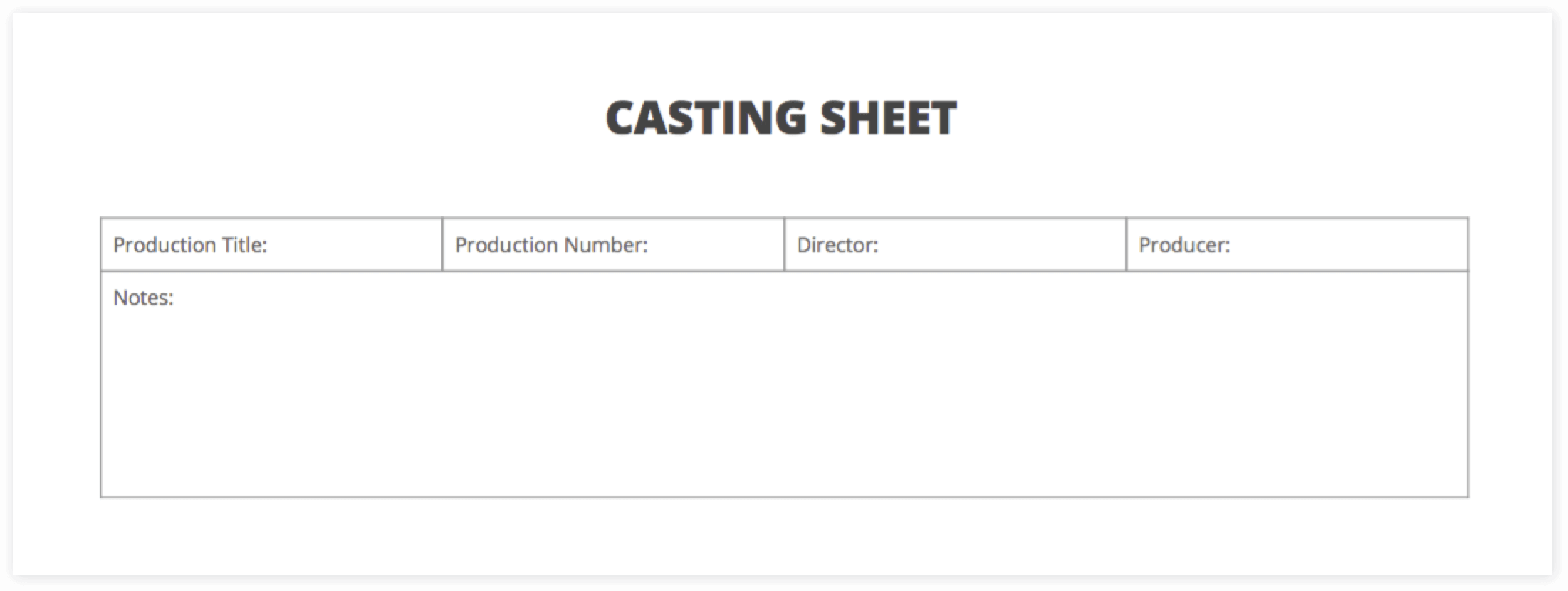
Our casting sheet template labels this section as Notes
8. Record every audition
Notes are not enough
While written notes are great, you should also record every audition. The casting process is one of watching audition sides over and over again until you decide the part’s been won.
To record the performances properly, designate a mark for your actors to stand on so that you capture the full range of the actor’s body language, not just pretty faces.
Make sure your actors “slate,” or says their name into the camera and shows both profiles before beginning the audition, to make going through the footage easier.
PRO TIP: GIVE ACTORS FEEDBACK
Actors may nail a performance, but if they’re not able to take direction, they won’t be able to work. If your actor isn’t delivering what you want, try to get it out. You don’t have to give directorial notes. Just suggestions to keep auditions moving and giving every actor a chance to shine.
9. Organize and backup talent information
Input contact information in database
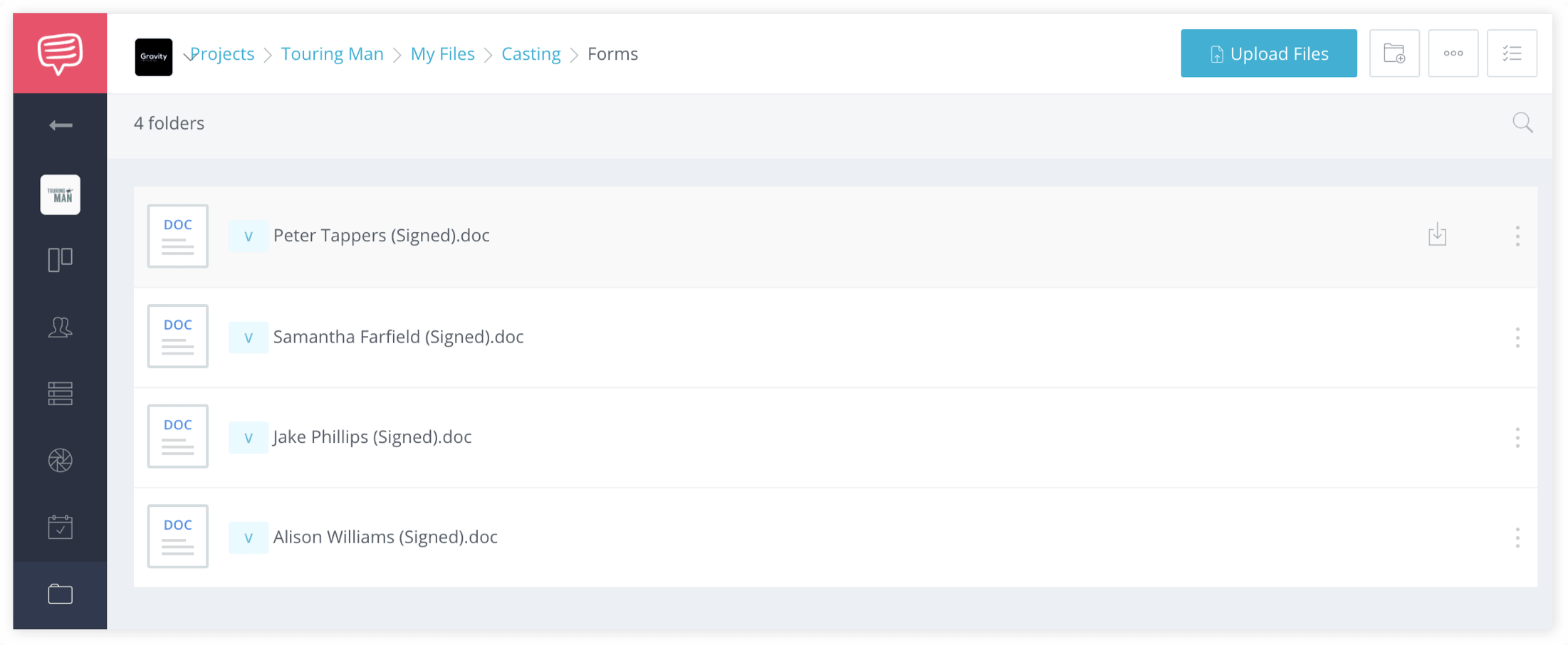
Input contact information in database
Once your open casting call is through, it’s time to go through the tapes. If you don’t carefully organize all the data you’ve collected, your casting notices will be a waste.
Develop an organization system to keep track of the audition recordings and casting sheet templates.
Create unique folders for every actor and label with the casting sheet. Enter their contact information into a database that you can easily sort if you need to contact them.
In StudioBinder, you can easily transfer your casting forms into an intuitive contact database that stores your actors’ information. With ample cloud storage, you can share the videos you like with teammates, who can watch audition sides to see if the magic you saw is still there.
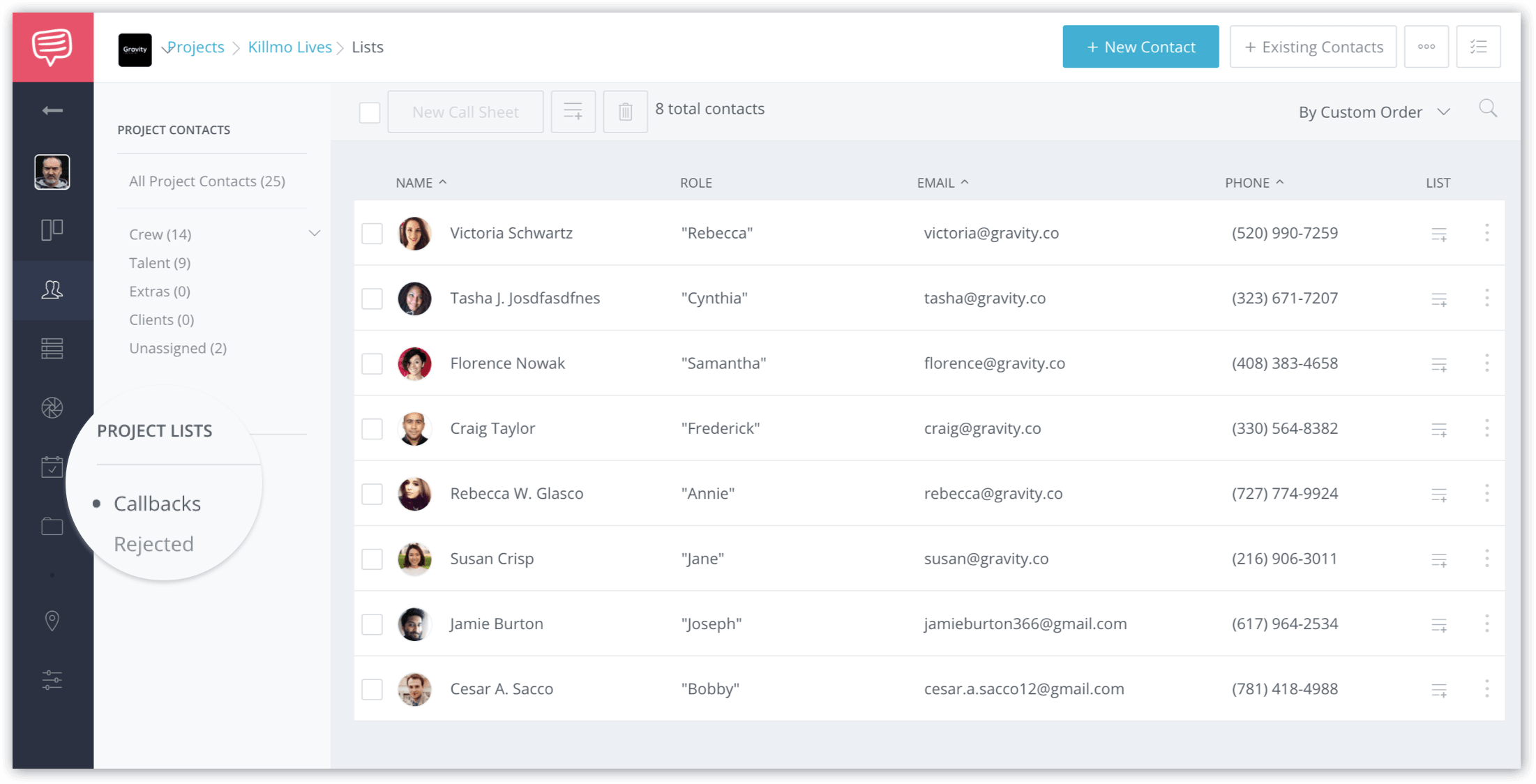
Create custom lists for "Callbacks" in StudioBinder
10. Send out callbacks
Setup a callback appointment
Maybe you’ve already figured out what actor you’re going with. In any case, your open casting call has become closed.
If actors are repped, call their agent to set up a callback appointment. If they aren’t, call the preferred number they listed on the audition sheet template.
They won’t have to fill out a casting sheet on their second-go round, but now you’ve weeded down the field to the lucky few who may star in your next project.
![How to Run an Open Casting Call (with FREE Casting Sheet Template) - Casting Sheet The Ultimate Guide to Auditions [FREE Casting Sheet Template] 2](https://s.studiobinder.com/wp-content/uploads/2017/06/How-to-Run-an-Open-Casting-Call-with-FREE-Casting-Sheet-Template-Casting-Sheet-1.png)
Manage talent & film crew contacts, all in one place.
Create and share mobile-friendly contact lists, call sheets, calendars and more. Complete video project management for producers & coordinators.
